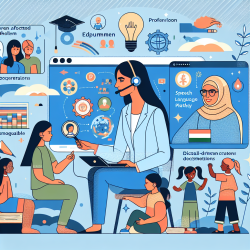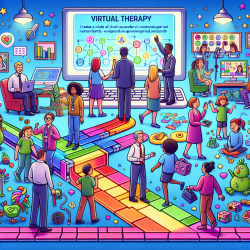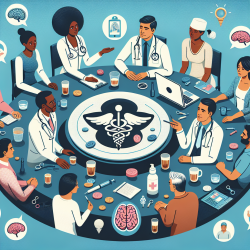Gender-affirming healthcare (GAHC) is an essential aspect of providing comprehensive and respectful care to transgender and gender diverse (TGD) individuals. The Southern African HIV Clinicians’ Society gender-affirming healthcare guideline for South Africa offers evidence-based recommendations to improve healthcare outcomes for TGD clients. This blog aims to help practitioners implement these guidelines effectively and encourage further research in this critical area.
Understanding the Guidelines
The guideline emphasizes a client-centered approach that respects the agency, autonomy, and self-determination of TGD individuals. It addresses the significant gaps in healthcare providers' knowledge and skills, advocating for practices that are affirming rather than pathologizing.
Key Areas of Focus
- Informed Consent: The guidelines highlight the importance of informed consent (IC) in GAHC, ensuring that clients are well-informed about the risks and benefits of treatment options. This collaborative process respects the client's autonomy and promotes a partnership between the healthcare provider and the client.
- Primary Care Integration: GAHC should be integrated into primary care services to broaden access. Primary care providers can safely administer hormone therapy (HT) and provide comprehensive care, including mental health support and screening for various health conditions.
- Non-Medical Practices: Understanding non-medical gender-affirming practices such as binding, tucking, padding, and packing is crucial. These practices can alleviate gender dysphoria and improve the quality of life for TGD clients.
- Psychosocial Care: Mental health support is a vital component of GAHC. Providers should offer supportive therapy and facilitate access to support groups, helping clients navigate the social and emotional aspects of their gender identity.
- Voice and Communication: Speech-language therapists play a significant role in helping TGD clients achieve their desired voice and communication goals. This can be an essential aspect of their gender expression and overall well-being.
Implementing the Guidelines
Practitioners can improve their skills and create better outcomes for TGD clients by adopting the following strategies:
- Continuous Education: Stay updated with the latest research and guidelines on GAHC. Participate in training programs and workshops to enhance your understanding and skills.
- Client-Centered Approach: Prioritize the needs and preferences of TGD clients. Engage in open and respectful communication, and involve them in decision-making processes.
- Collaborative Care: Work with a multidisciplinary team, including mental health professionals, endocrinologists, and speech-language therapists, to provide comprehensive care.
- Advocacy: Advocate for policies and practices that promote the rights and well-being of TGD individuals. Challenge stigma and discrimination within the healthcare system and broader society.
Encouraging Further Research
There is a need for ongoing research to refine and improve GAHC practices. Practitioners can contribute to this effort by:
- Participating in Research: Engage in or support research studies that explore the experiences and outcomes of TGD clients receiving GAHC.
- Data Collection: Collect and analyze data on the health outcomes of TGD clients to identify gaps and areas for improvement in care.
- Sharing Knowledge: Publish findings and share best practices with the broader healthcare community to promote evidence-based GAHC.
By implementing these guidelines and fostering a culture of continuous learning and advocacy, healthcare providers can significantly improve the quality of care for TGD clients.
To read the original research paper, please follow this link: Southern African HIV Clinicians’ Society gender-affirming healthcare guideline for South Africa.










